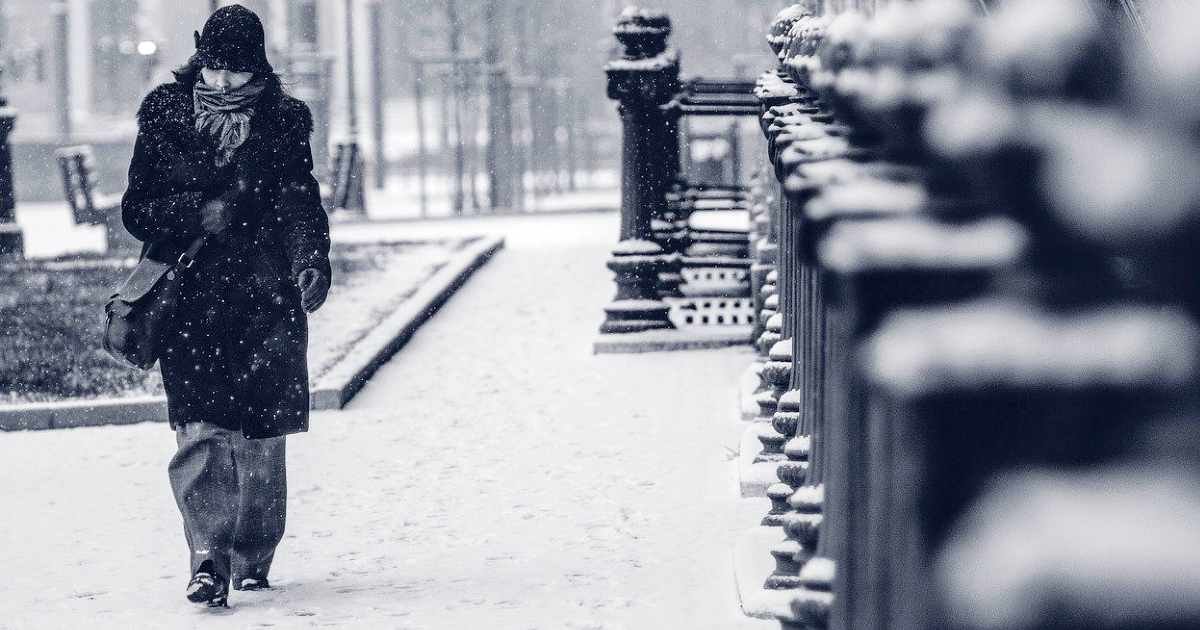A new study finds that almost one in five people lack a certain protein in their muscles, which gives them better resilience to the cold.
The study was published on February 17 in the American Journal of Human Genetics.
The protein α-aktinin-3, which is found only in fast-twitch fibers, is absent in almost 20% of people.
The absence of that protein is due to a mutation in the gene that codes for it. In evolutionary terms, the presence of the mutated gene increased when humans migrated from Africa to the colder climates of central and northern Europe.
Some people are innately better at keeping warm
“This suggests that people lacking α-aktinin-3 are better at keeping warm and, energy-wise, at enduring a tougher climate,” said co-author Håkan Westerblad of the Karolinska Institutet. “But there hasn’t been any direct experimental evidence for this before.”
“We can now show that the loss of this protein gives a greater resilience to cold,” Westerblad said. “And we’ve also found a possible mechanism for this.”
For the study, 42 healthy men between the ages of 18 and 40 sat in cold water (14 °C, or 57° F) until their body temperature had dropped to 35.5 °C (96 °F).
During immersion into the cold water, researchers measured the subjects’ muscle electrical activity with electromyography (EMG). They also took muscle biopsies to study the protein content and fiber-type composition.
The results showed that the skeletal muscle of people lacking α-aktinin-3 had a greater proportion of slow-twitch fibers. When they were in the process of cooling, these people were able to maintain their body temperature in a more energy-efficient way.
Less shivering
Rather than activating fast-twitch fibers, which results in overt shivering, they increased the activation of slow-twitch fibers that produce heat by increasing baseline contraction (tonus).
“The mutation probably gave an evolutionary advantage during the migration to a colder climate,” said Westerblad. But today, he said, this energy-saving ability might instead increase the risk of some “diseases of affluence.”
Examples include type 2 diabetes, asthma, and heart disease.
A genetic mutation for endurance sports
Another interesting question is how the lack of α-aktinin-3 affects the body’s response to physical exercise.
“People who lack α-aktinin-3 rarely succeed in sports requiring strength and explosiveness, while a tendency towards greater capacity has been observed in these people in endurance sports,” Westerblad said.
Selecting for resilience to the cold
In conclusion, the researchers write, people who lack α-actinin-3 “exhibit improved cold tolerance during cold-water immersion.” This is linked, in part, to “an energetically effective heat-generating increase in muscle tone, rather than overt shivering.”
These findings provide a mechanism for the increase in the frequency of this mutation, “as modern humans migrated from Africa to the colder climates of central and northern Europe over 50,000 years ago.”
The latest in psychology news:
- Cautiously optimistic: new study finds that unrealistic optimism actually decreases happiness.
- This new study finds a lack of flirting skill is the main reason behind “involuntary singlehood.”
- Recent research has found that calling versus texting (or e-mailing) isn’t nearly as awkward as people expect.
- The reasons why couples look alike are many, but a new study has found no evidence for the popular idea that couples resemble each other more the longer they are together.
- New research on “indirect aggression” – also known as meanness – finds that mean children often grow into mean adults.
Study: “Loss of α-actinin-3 during human evolution provides superior cold resilience and muscle heat generation”
Authors: Victoria L. Wyckelsma, Tomas Venckunas, Peter J. Houweling, Maja Schlittler, Volker M Lauschke, Chrystal F. Tiong, Harrison D. Wood, Niklas Ivarsson, Henrikas Paulauskas, Nerijus Eimantas, Daniel C. Andersson, Kathryn N. North, Marius Brazaitis, and Håkan Westerblad
Published in: American Journal of Human Genetics
Publication date: February 17, 2021
DOI: http://dx.doi.org/10.1016/j.ajhg.2021.01.013
Photo: by Free-q1Photos from Pixabay

